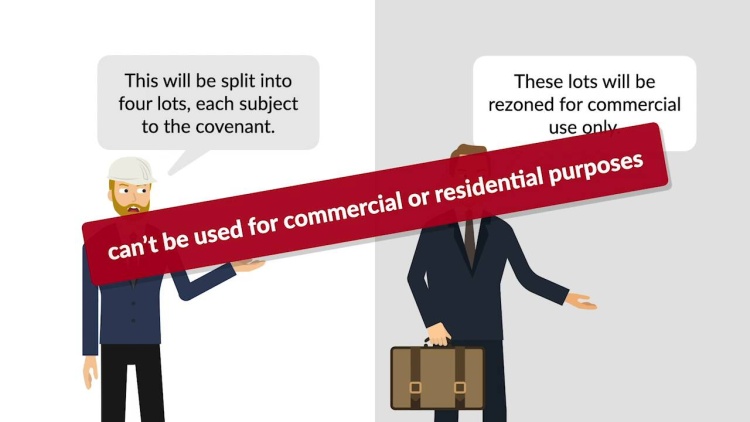River Heights Associates v. Batten
Virginia Supreme Court
591 S.E.2d 683 (2004)
- Written by Angela Patrick, JD
Facts
Alice Batten (plaintiff) owned property in a subdivision along Route 29. The subdivision had four unimproved lots that were owned by River Heights Associates Limited Partnership and other entities (defendants). Wendell Wood and his wife, Marlene Wood, owned these entities. When the subdivision was created, the lots were placed under a restrictive covenant that prevented them from being used for commercial purposes. However, the county later rezoned those four particular lots for commercial use only. Thus, at the time the Woods’ entities purchased the four lots, they were zoned for only commercial uses yet under a restrictive covenant that prohibited commercial uses, making the lots usable only as open space. Further, at the time the subdivision and the covenant were created, Route 29 was a two-lane road, and the area around the subdivision was mostly residential, with some small businesses. By the time of trial, the area had become a highly developed commercial district, and Route 29 had been expanded to 10 lanes. There had been no change of use within the subdivision itself, however. The Woods sought to develop their lots into commercial properties. The Woods argued that due to the change in conditions around the subdivision, the doctrine of changed conditions applied, nullifying the restrictive-use covenant that prohibited commercial development. Batten sued, seeking to enforce the covenant and prohibit the commercial development. The trial court ruled in favor of Batten, finding that the covenant was enforceable. The Woods appealed to the Virginia Supreme Court.
Rule of Law
Issue
Holding and Reasoning (Carrico, J.)
What to do next…
Here's why 907,000 law students have relied on our case briefs:
- Written by law professors and practitioners, not other law students. 47,100 briefs, keyed to 996 casebooks. Top-notch customer support.
- The right amount of information, includes the facts, issues, rule of law, holding and reasoning, and any concurrences and dissents.
- Access in your classes, works on your mobile and tablet. Massive library of related video lessons and high quality multiple-choice questions.
- Easy to use, uniform format for every case brief. Written in plain English, not in legalese. Our briefs summarize and simplify; they don’t just repeat the court’s language.





